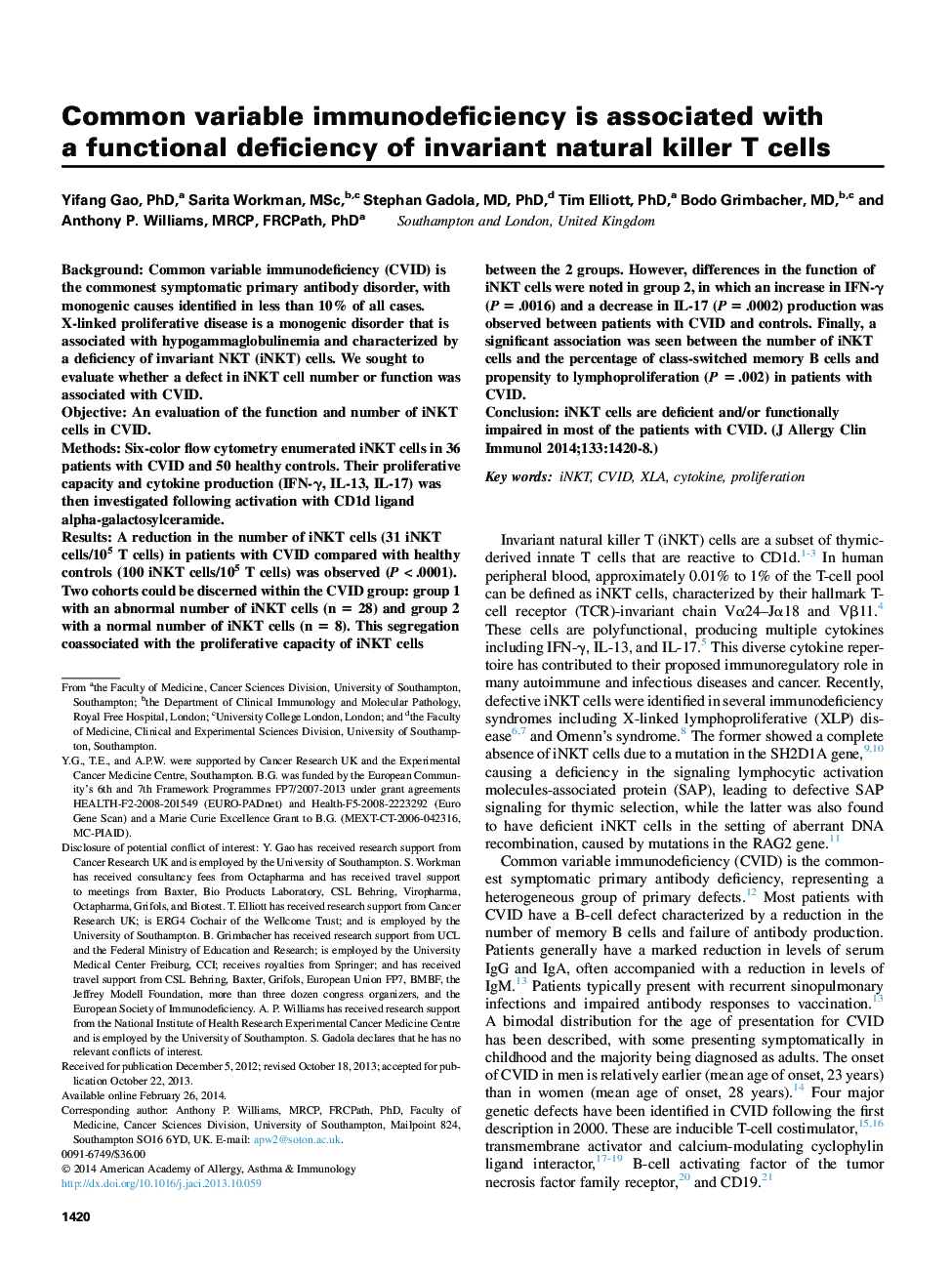| Article ID | Journal | Published Year | Pages | File Type |
|---|---|---|---|---|
| 6063981 | Journal of Allergy and Clinical Immunology | 2014 | 10 Pages |
BackgroundCommon variable immunodeficiency (CVID) is the commonest symptomatic primary antibody disorder, with monogenic causes identified in less than 10% of all cases. X-linked proliferative disease is a monogenic disorder that is associated with hypogammaglobulinemia and characterized by a deficiency of invariant NKT (iNKT) cells. We sought to evaluate whether a defect in iNKT cell number or function was associated with CVID.ObjectiveAn evaluation of the function and number of iNKT cells in CVID.MethodsSix-color flow cytometry enumerated iNKT cells in 36 patients with CVID and 50 healthy controls. Their proliferative capacity and cytokine production (IFN-γ, IL-13, IL-17) was then investigated following activation with CD1d ligand alpha-galactosylceramide.ResultsA reduction in the number of iNKT cells (31 iNKT cells/105 T cells) in patients with CVID compared with healthy controls (100 iNKT cells/105 T cells) was observed (P < .0001). Two cohorts could be discerned within the CVID group: group 1 with an abnormal number of iNKT cells (n = 28) and group 2 with a normal number of iNKT cells (n = 8). This segregation coassociated with the proliferative capacity of iNKT cells between the 2 groups. However, differences in the function of iNKT cells were noted in group 2, in which an increase in IFN-γ (P = .0016) and a decrease in IL-17 (P = .0002) production was observed between patients with CVID and controls. Finally, a significant association was seen between the number of iNKT cells and the percentage of class-switched memory B cells and propensity to lymphoproliferation (P = .002) in patients with CVID.ConclusioniNKT cells are deficient and/or functionally impaired in most of the patients with CVID.
